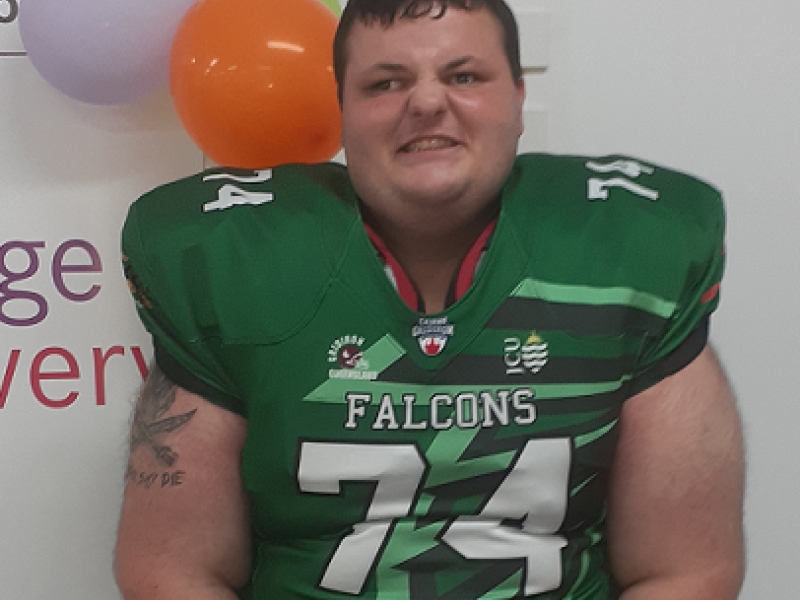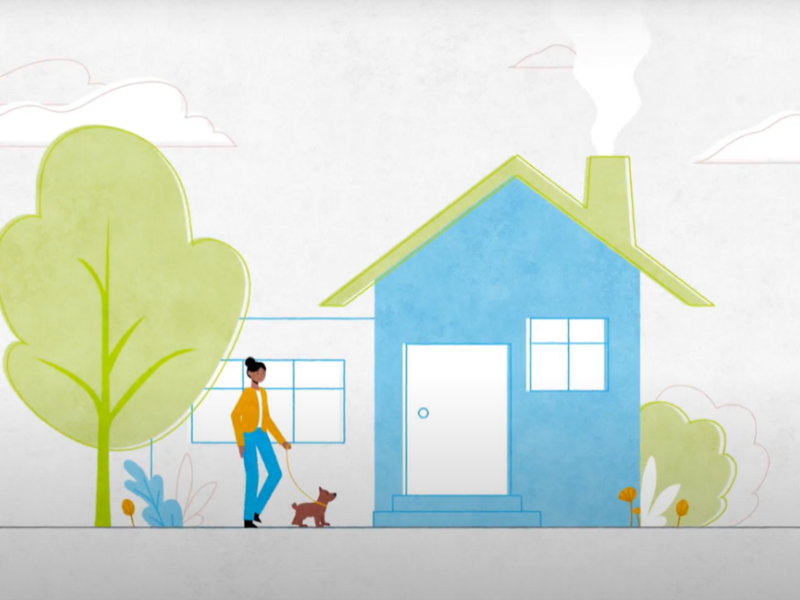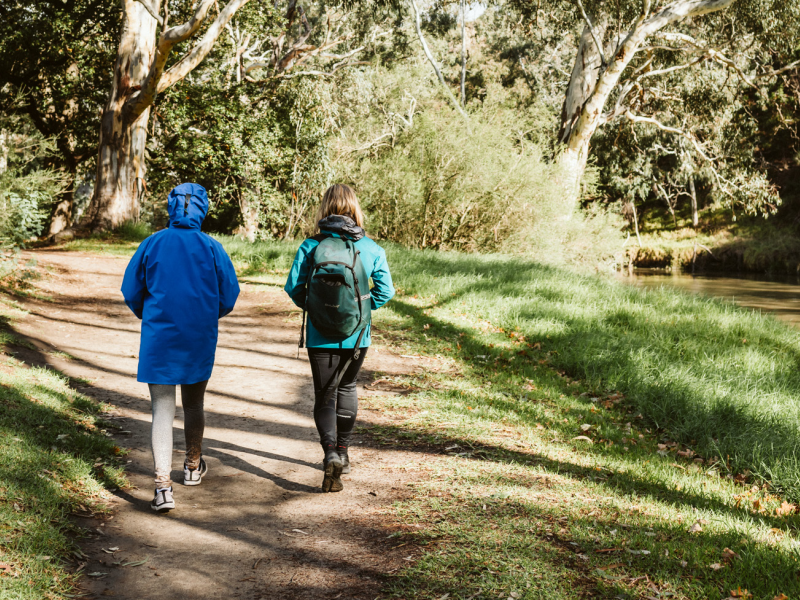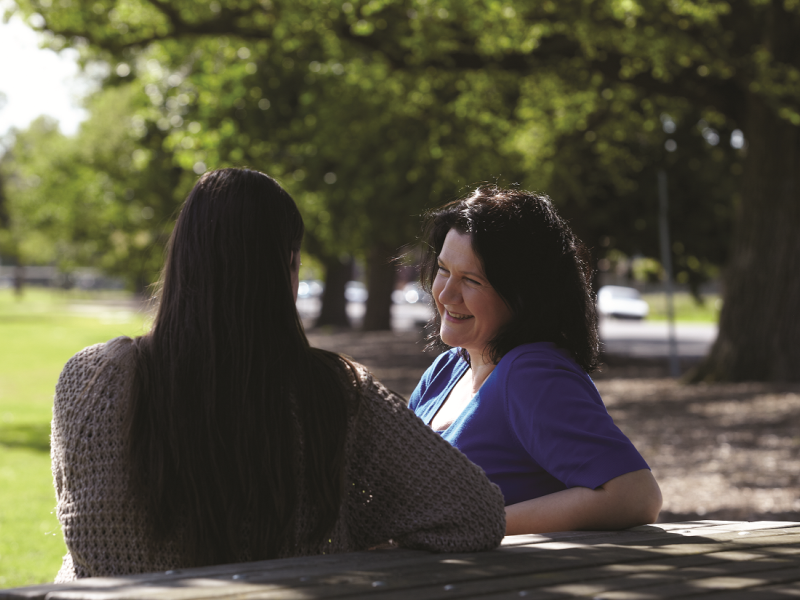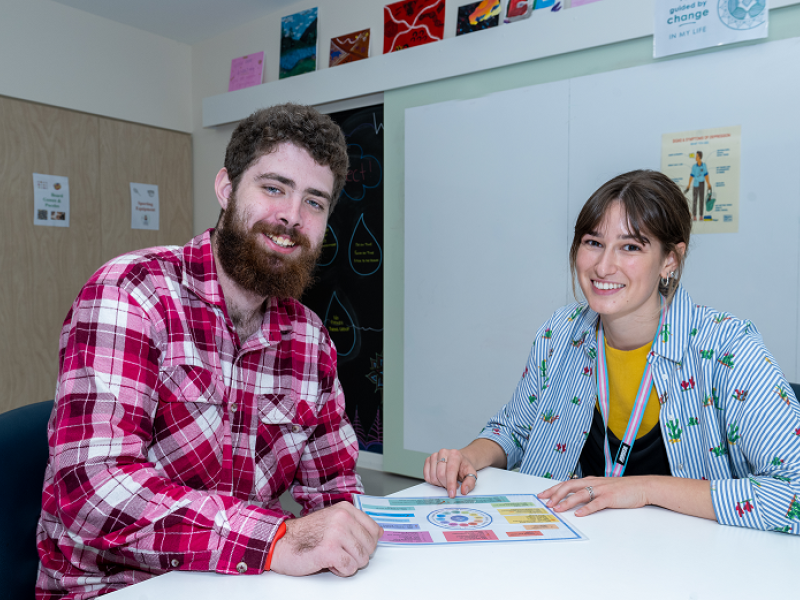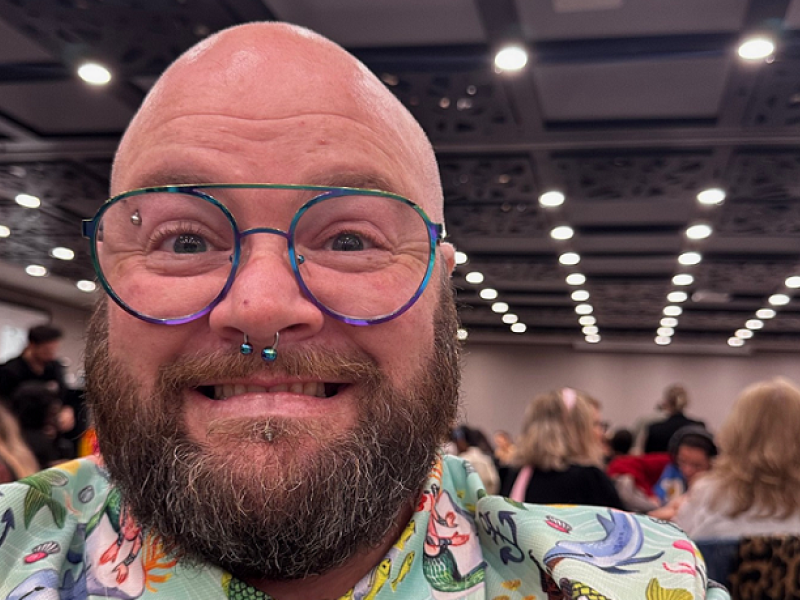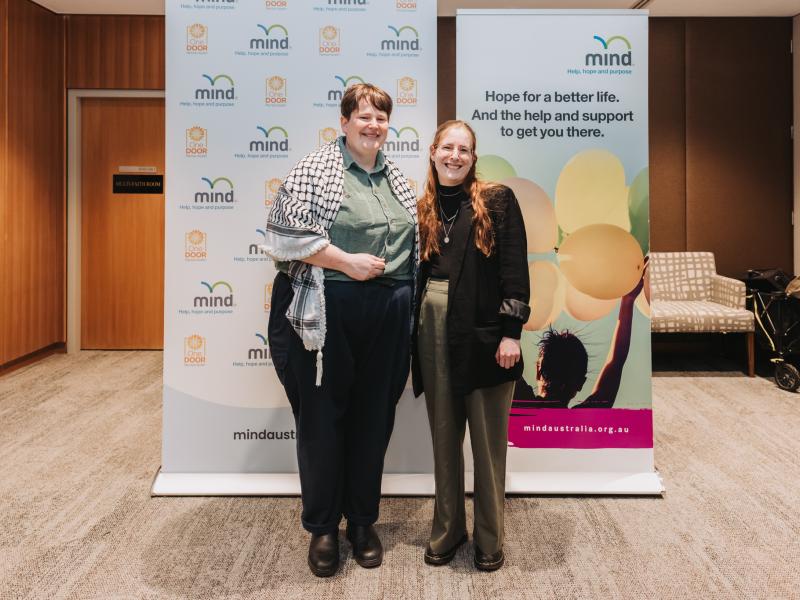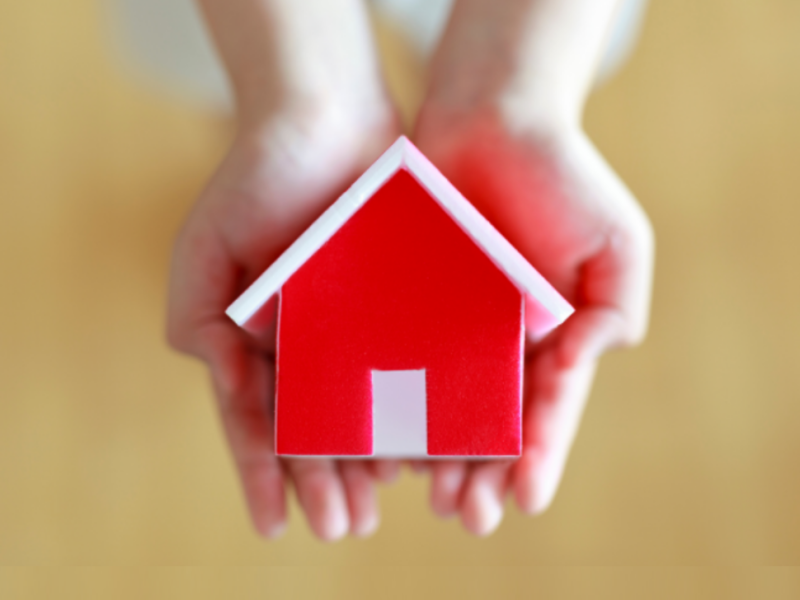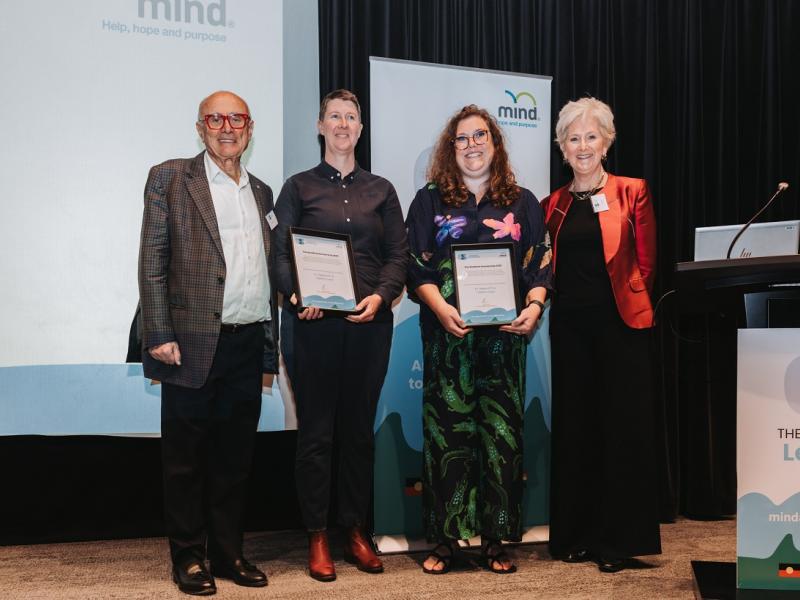A few years ago, you would have been lucky to get a sentence out of Julian.
The Cairns local had a difficult upbringing because of mental health, physical and behavioural conditions, and was often labelled by other kids as “crazy” and “weird”. Subsequently, he missed out on making friends, participating in team activities and developing important social and communication skills.
“Most of the time I was aggressive. I didn’t like talking to people because I was given negative labels like ‘the guy you didn’t want to be friends with’,” Julian said.
Now, Julian is thriving; he is managing his mental health and wellbeing and has become an active member of his community. He’s even become a valued member of the Cairns Falcons Gridiron Football team.
The 21-year-old, with a lot of support from his mum, has worked hard to get to this point.
Following a hospital admission related to his schizophrenia diagnosis in 2020 Julian was referred to Mind and connected with his support worker, Kim, through the Individual Recovery Support Program (IRSP) – an outreach program of individualised recovery support of up to 12 months that helps clients live independently and safely in the community.
Using Mind’s My Better Life Plan, Julian and Kim worked together to identify Julian’s life goals and create a plan to achieve them. Julian’s goals included: getting healthy, fit and strengthening social connections.
“It was great having someone to work with me, checking up on me and making sure I was happy and safe. Kim always made sure I was stable, had plenty of food and supplies, and he supported me with getting to and from appointments and groups. Kim was always there to talk about issues and for me that support was really beneficial,” Julian said.
“Everything Kim and I did was purpose-built and designed to help me get back into the community; we went out and played card games with others as a way of working on my communication skills.”
Julian also attended Mind Recovery College® courses – a program that bridges the gap between mental health service and education. Through these courses Julian was able to learn about using mindfulness to strengthen his mental equilibrium, building emotional resilience and improving social connections.
Julian says he has come a long way in the past two years. “My mental health has improved quite a lot. Before Mind I was quite aggressive and paranoid; I didn’t like talking to people because I was described as a ‘crazy person’. I have gained a lot of connections through Mind, and my communication skills have improved a lot too,” Julian said.
He has recently joined Mind’s Lived Experience Advisory Team – a group of Mind clients, carers and family who help Mind (and the broader mental health system) to be person-centred in everything they do. Being part of a footy team has been great too.
“Participating in a team sport has boosted my self-confidence and given me friendships with people who are accepting of differences and are very supportive. Playing community sport provides
opportunities to create strong relationships and every relationship is meaningful because every person can help us learn something about ourselves and about the world we live in,” Julian said.
“Julian has many characteristics of people who have recovered from mental illness,” Kim says. “He is highly proactive and motivated, willing to make positive changes in his life, clear of what he wants and needs, and he works hard toward his recovery goals.”
Kim believes the support of Julian’s peers and Mind Recovery College peer workers have played a major role in Julian’s improved communication skills.
“I think they assisted him in the development of social skills. Their feedback has enhanced his motivation, and really helped build his confidence and his ability to self-managing his emotions. The therapeutic relationship Julian developed with them played a vital role in the healing process.”
“Julian is very positive about his future despite all the adversities such as his unfortunate childhood, mental health and eye conditions. He has great potential and is talented in many areas, so I have no doubt Julian will do well in his recovery journey.”
Find more information on the Mind Recovery College or call Mind Connect on 1300 286 463.
If this article raises concerns for you, please call Lifeline on 13 11 14. Aboriginal and Torres Straits Islanders can also call 13 YARN (13 92 76) a 24/7 national crisis support telephone service staffed by Aboriginal and Torres Strait Islander peoples.
If you would like more information, please contact us.
1300 286 463
[email protected]
